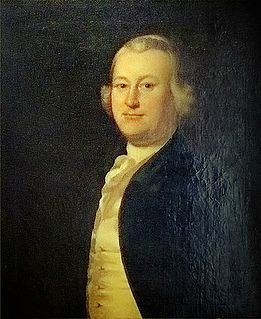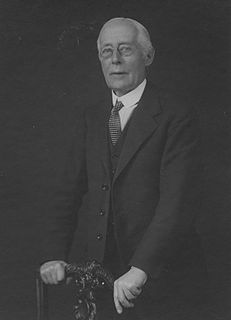A Quote by James Otis
And I take this opportunity to declare, that... I will to my dying day oppose with all the powers and faculties God has given me, all such instruments of slavery on the one hand, and villainy on the other, as this writ of assistance is. It appears to me the worst instrument of arbitrary power, - the most destructive of English liberty and the fundamental principles of law, that ever was found in an English law book.
Quote Topics
Appears
Arbitrary
Arbitrary Power
Assistance
Book
Day
Declare
Destructive
Dying
English
English Law
Ever
Faculties
Found
Fundamental
Fundamental Principles
Given
God
Hand
Instrument
Instruments
Law
Liberty
Me
Most
Opportunity
Oppose
Other
Power
Powers
Principles
Slavery
Take
Villainy
Will
Worst
Writ
Related Quotes
For Dicey, writing in 1885, and for me reading him some seventy years later, the rule of law still had a very English, or at least Anglo-Saxon, feel to it. It was later, through Hayek's masterpieces "The Constitution of Liberty" and "Law, Legislation and Liberty" that I really came to think this principle as having wider application.
Law itself is either suspended, or regarded as an instrument that the state may use in the service of constraining and monitoring a given population; the state is not subject to the rule of law, but law can be suspended or deployed tactically and partially to suit the requirements of a state that seeks more and more to allocate sovereign power to its executive and administrative powers. The law is suspended in the name of "sovereignty" of the nation, where "sovereignty" denotes the task of any state to preserve and protect its own territoriality.
It is left... to the juries, if they think the permanent judges are under any bias whatever in any cause, to take on themselves to judge the law as well as the fact. They never exercise this power but when they suspect partiality in the judges; and by the exercise of this power they have been the firmest bulwarks of English liberty.
The power of discretionary disqualification by one law of Parliament, and the necessity of paying every debt of the Civil List by another law of Parliament, if suffered to pass unnoticed, must establish such a fund of rewards and terrors as will make Parliament the best appendage and support of arbitrary power that ever was invented by the wit of man.
We must never cease to proclaim in fearless tones the great principles of freedom and the rights of man which are the joint inheritance of the English-speaking world and which through Magna Carta, the Bill of Rights, the Habeas Corpus, trial by jury, and the English common law find their most famous expression in the American Declaration of Independence.
Courts are the mere instruments of the law, and can will nothing. When they are said to exercise a discretion, it is a mere legal discretion, a discretion to be exercised in discerning the course prescribed by law; and, when that is discerned, it is the duty of the Court to follow it. Judicial power is never exericised for the purpose of giving effect to the will of the Judge; always for the purpose of giving effect to the will of the Legislature; or, in other words, to the will of the law.
The honor that we pay to the Son of God, as well as that which we render to God the Father, consists of an upright course of life. This is plainly taught us by the passage, "You that boast of the Law, through breaking the Law dishonor God."...For if he who transgresses the law dishonors God by his transgression,...it is evident that he who keeps the law honors God. So the worshipper of God is he whose life is regulated by the principles and teachings of the Divine Word

































